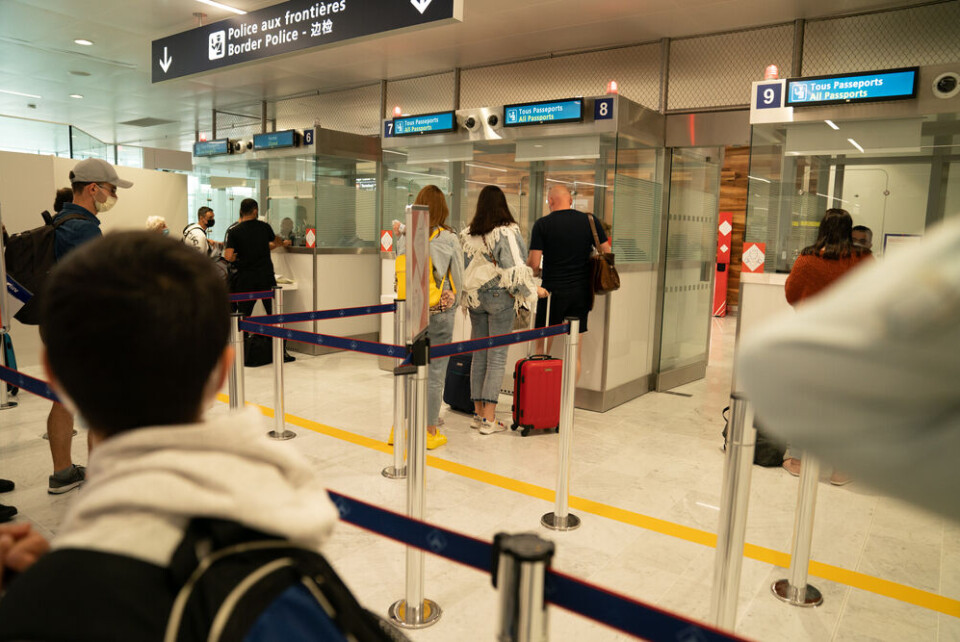-
QR code to replace paper instructions for 100 medicines in France in new trial
Paracetamol and cholesterol medication to be included in scheme that launches this autumn
-
Online ‘anti-waste’ supermarket offers deals on everyday items in France - we test it
Discounts of 10% to 50% available on brand products
-
The curious case of Good Friday: Why only some parts of France have the day off
Three French departments benefit from two extra public holidays
How will new border checks affect British residents of France?
The first of the new systems EES is set to start in autumn 2024 and the second Etias six months later

The changes to the EU border coming into force from autumn will not affect UK nationals who live in France in the same way as other British nationals.
We review what the Entry/Exit system of biometric border checks and the Etias system will mean for both residents and visitors.
The first of the scheduled changes to the border is the Entry/Exit system (EES). The EES is a digital system that will track the arrivals and departures of non-EU visitors to the Schengen area.
It is not a physical document and there is no fee, however non-EU/EEA/Swiss visitors to the EU will have to have photographs and fingerprints taken on their first entry to the Schengen area after it comes in (or first exit if they are already in the area when EES comes into force).
The EES is due to come into force this autumn.
The second change to the border is the Etias system. This will be an electronic authorisation system for visa-exempt travel around the EU.
Read more: What is the EU’s Etias visa waiver scheme?
It is linked to a passport and is valid for up to three years or until the passport’s expiry.
Those with a valid Etias travel authorisation will be able to enter the territory of these European countries as often as required for short-term stays - normally for up to 90 days in any 180-day period.
Etias is expected to come into force six months after EES.
Do these systems affect UK residents of France?
People who live in France on a settled basis, with long-stay visas and/or residency cards will not be concerned directly, but should be aware of the coming changes.
Longer queues are being predicted and it is possible residents could get caught up in these additional delays. Some data is expected to be collected via special booths or tablet computers, but at least in the first instance, all of those concerned by EES will also have to pass in front of a border official.
Residents will also need to warn any visiting friends and family members of the new rules.
The EES will track travellers who are coming for short stays, for example UK tourists and second-home owners (and others from ‘visa waiver’ countries such as the US) who are using their entitlement to stay for up to 90 days in any 180-day period. People coming on short-stay visas (of nationalities subject to this requirement to visit the EU) will also be concerned.
If you have a Brexit Withdrawal Agreement card you must show it to the border police on arrival in France. This is already the case, but the arrival of EES could mean longer waits as other non-EU nationals go through the new processes.
Non-EU nationals who are family members of an EU citizen will still need to use EES even though they are not subject to the 90/180-days rule if they remain in an EU country with their EU family beyond this period (however they do have to apply for a residency permit if staying more than three months).
The Etias system concerns all non EU/EEA/Swiss citizens who do not have a long-term right to stay in France (ie. a visa, a Brexit withdrawal agreement carte de séjour etc) and who are not subject to the requirement to obtain a short-stay visa to come to the EU.
Such people will have to apply for their Etias travel authorisation prior to arrival at the border.
However, people with a visa already have this right and will not require Etias.
The Connexion publishes an e-guide about Visa and Residency cards for France - find out more here.
Read more
How will EES/Etias affect spouses of EU nationals in France?
New European Entry/Exit System: 9 key things to know in advance
























